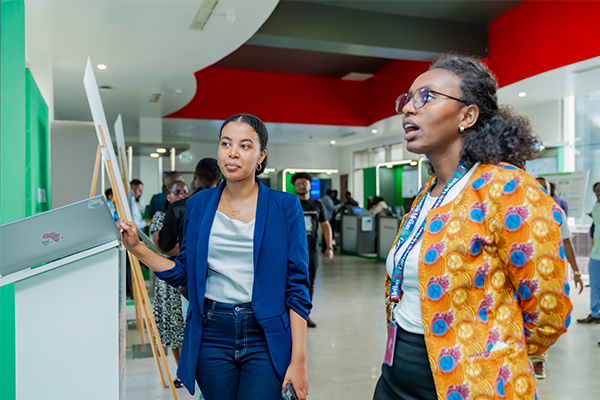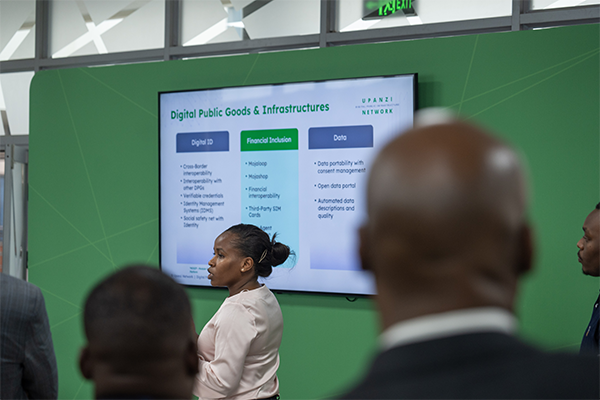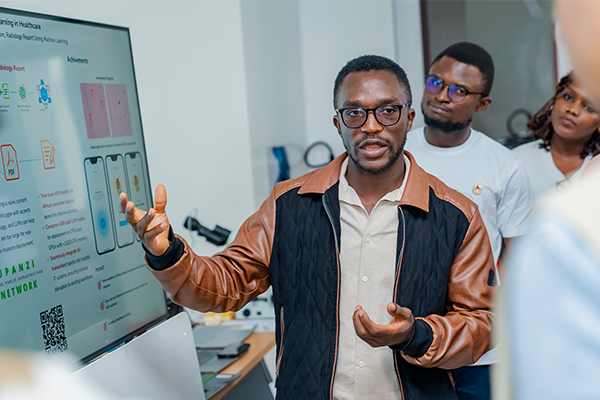
The Digital Experience Center at Carnegie Mellon University Africa, established by the Upanzi Network, is a dynamic physical space designed to showcase cutting-edge digital technologies and their real world applications. Visitors are immersed in the hypothetical "Upanzi Land," where live interactive demonstrations illustrate how solutions like legal identity, digital payments, cybersecurity, and infrastructure interoperate seamlessly.
The center highlights innovations in DPI/DPGs, cybersecurity, public health, agriculture, and more, offering insights into the transformative impact of these technologies. Additionally, the center features projects by researchers in collaboration with external partners, bridging academic exploration with real world problem-solving.
The Digital Experience Center is more than a showcase; it is a hub for innovation, collaboration, and strategic impact. By leveraging advanced technologies like AI and data analytics, it models efficient resource allocation and serves as a catalyst for national digital initiatives, fostering partnerships among government, industry, and academia. This collaborative effort underscores Upanzi Network's commitment to building a robust digital ecosystem, supporting sustainable development, and ensuring inclusive growth, positioning the center as a symbol of dedication to a digitally empowered future.
Experience the digital transformation of Africa
The Digital Experience Center is broken down into stages that each highlight a critical component of the digital transformation journey.
Stage 0: An overview of the Upanzi Network
In stage 0, you will be provided an in-depth understanding of the Upanzi Network, its history with CyLab-Africa and its growth to today. At this stage, you will also learn about the goals, mission, and vision of the network and get an overview of its different areas of focus.
Stage 0 will also set the premise of the imaginary country, Upanzi Land, which demonstrates the use of multiple digital public goods and principles to drive the country's digital transformation.
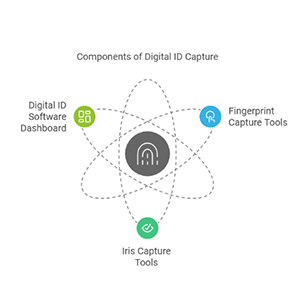
Stage 1: Digital public goods and infrastructure, digital ID
A critical component of stage 1 showcases the work that Upanzi Land is doing to incorporate the different kinds of tools and software required to capture and register a citizen's digital ID. At this stage, you will be invited to try out the different fingerprint and iris capture tools and hardware, as well as demonstrate the digital ID capture software dashboard.
Stage 2: Digital public goods and infrastructure, digital ID use cases and authentication
In stage 2, you will be given an opportunity to authenticate your registration and also be given an overview of the use case beneficiary authentication platform that the lab has created, which showcases how digital ID can be used to verify a citizen's access to a particular benefit or service.
Stage 3: Data
Data is a critical component in driving the digital transformation agenda. In this stage, you can see the different projects that the Upanzi Network, together with its partners, has been working on, from empowering patients' rights to share and revoke access to their data at hospitals to the teams working on the use of AI and machine learning to speed up the diagnosis of diseases and detect diseases early infancy while keeping personal data private as much as possible.
In stage 3, you will also get to see some of the internet data analysis and measurements that the team is working on together with our partners to understand trends and insights that will assist in improved planning and resource allocation for our citizens.
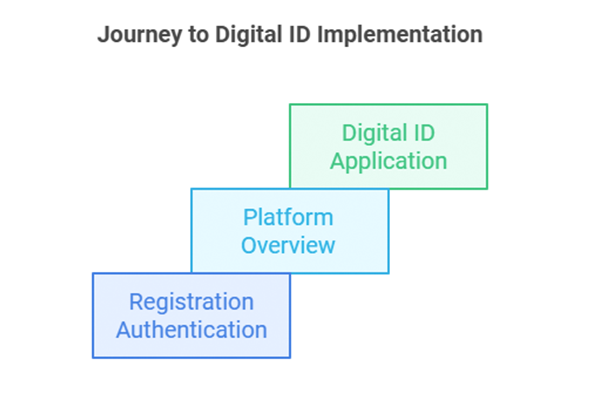
Stage 4: Digital public goods and infrastructure, finance
Money makes the world go around, even in Upanzi Land. Interoperability and deployability are essential pillars of digital public infrastructure, which the lab has explored. We are looking at possibly demonstrating digital instant payments across multiple channels, systems, and platforms.
In this stage, you will see how the team has used open source platforms to create an Upanzi bank and a digital payment experience for merchant customers.
Stage 5: Cybersecurity
With interesting initiatives under digital ID, data, and finance, stage 5 provides you with an overview of different the cybersecurity initiatives the network is working on. These range from assessing the security vulnerabilities of e-services online to using crowdsourcing methods to track and understand the trends of cybersecurity threats on the continent.
Cybersecurity is a critical component of digital transformation, and it is at the center of all work done in the lab and within Upanzi Land.
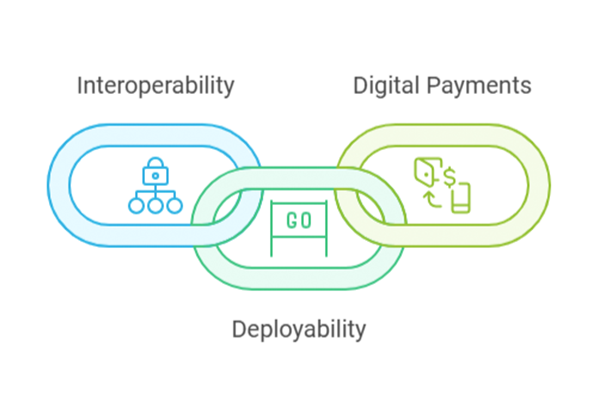
Stage 6: Digital capacity building
One of the biggest challenges we face in achieving the right digital transformation in Africa is having the right number of people with the needed digital skills to build, maintain, and grow digital systems.
In stage 6, you will see the different digital capacitation initiatives the lab and the network are working on, ranging from cybersecurity to our Digital ID Hackathon.
Stage 7: Connectivity
To achieve positive digital transformation across the continent, connectivity must be universal, especially for the most vulnerable. In stage 7, you will see some of the initiatives that the lab and the network are researching to use low-cost infrastructure to improve connectivity within rural areas and protect vulnerable beneficiaries from smishing messages.
